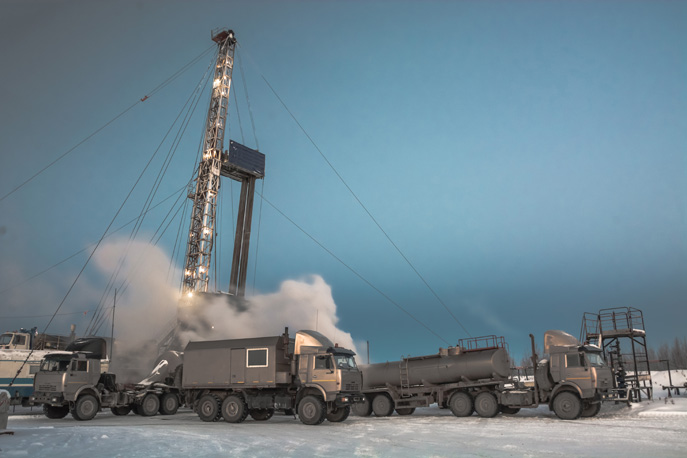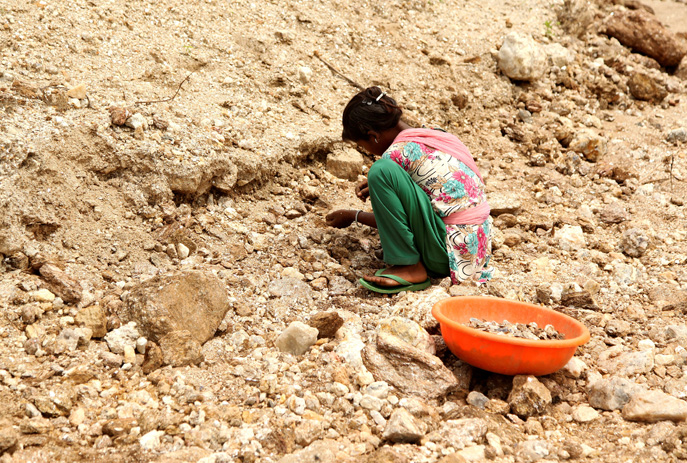In his column in the new Sustainable Business Review, Oliver Balch analyses the latest sustainability news affecting companies, from climate risk to supply chain standards
With the divestment movement gaining pace and the regulatory noose tightening, oil and gas companies are finding their climate records under scrutiny like never before. Burned by historic write-downs (Shell wrote off assets worth $22bn in 2020) and with the threat of future stranded assets looming, investors increasingly expect assurance that fossil-fuel firms’ climate risks are under control.
The fact that U.S. oil major and sector straggler ExxonMobil should at last see fit to disclose its product-related emissions (equivalent to 730 million metric tonnes of carbon dioxide) and commit to reducing upstream emissions by 15-20% reveals the extent of this rising pressure. French oil giant Total has placed an even more symbolic stake in the ground by walking out of the American Petroleum Institute, citing its obstruction of climate measures such as the landmark Paris Agreement.
Such steps are welcome, but what investors really want – especially those of a more environmental hue – are meaningful steps towards business-model transition. Think: investments in clean energy, research into alternative fuels, experimentation in carbon capture, and so forth. Here, an emerging Europe-U.S. divide can be seen, according to Bloomberg Intelligence. In a new paper, the market analysis firm singles out Europe-based firms such as Shell, Total and Equinor for their support of renewables and electric vehicle charging points. Its study of 39 global oil firms finds fewer bright spots, although mention is made of Chevron, in part because of its $100m Future Energy Fund, a cash-pot that recently helped the California-based oil major snap up Blue Planet Systems, a U.S. startup involved in carbon capture.
Government policy could feasibly turn the tide on boardroom opinion. In this respect, the decision by the new Biden administration to re-engage with the Paris Agreement is a welcome step. If serious federal finance for energy transition follows, the U.S. oil industry might just lend an ear. Here, the White House might want to look to the Hague, where the Dutch government has promised €5bn in subsidies in 2021 for technologies that advance its climate goals (a stimulus, incidentally, that has already attracted the attention of an innovative carbon storage scheme led by, among others, Shell and Exxon).

Yet, the global nature of oil deposits makes a U.S.-Europe divide far from clear-cut. So, too, does the predominance of joint ventures within the industry, especially those with state-owned monopolies, which is often a prerequisite for accessing the world’s most lucrative oil fields. Nowhere is this clearer than in the Russian-controlled Arctic, where Vostok Oil recently announced a hugely ambitious $136bn exploration project. An environmental disaster from start to finish, the Kremlin-backed 15-year project asks tricky questions of several UK companies.
Top of the list is UK-domiciled oil giant BP, which owns a 20% stake in Vostok’s principal owner, Rosneft (which recently pledged to cut 20m tonnes of carbon dioxide-equivalent emissions by 2035). Rosneft is one of the world's biggest 25 GHG emitters, as revealed in exclusive research by Reuters with Signal Climate Analytics (See Where is Big Carbon in the race to net zero?). Also in the line of fire is Swiss-based trading company, Trafigura, which acquired a 10% stake in the project sponsor back in December. How does drilling 6bn tonnes of fossil fuels from an environmental wilderness coincide with BP’s pledge to carbon neutrality by 2050, or Trafigura’s recent claim to be “rapidly evolving to adapt to the changing needs of a world facing climate change”? Investors will want to know.
Getting to grips with the future of work
IT'S NO SECRET that the world of work is in flux. Correction: in meltdown. As if the spectre of a digitally inspired, robotically charged Fourth Industrial Revolution wasn’t already enough, along comes Covid-19. In the second quarter of last year alone, working hours equivalent to 495 million jobs were lost. The immediate future also looks fairly grim. Business leaders surveyed for the World Economic Forum’s latest Global Risks Report place a global jobs crisis as among the three biggest risks facing the world over the next two years.
Commenting on the findings, WEF’s managing director Saadia Zahidi said the need for a more inclusive economic model with social safety nets was only too clear. Labour market woes are likely to affect workers in low-income countries the most, according to a new report from the International Labour Organization, which talks of the “scarring effects” of the pandemic as legitimate businesses close and an increasing number of people fall into informality and poverty. Even in developed markets, the WEF report talks of growing digital inequality and youth disillusionment.
In response to this worrying scenario, global consumer goods company Unilever has come out with a trio of employment commitments. Two of the three focus on “future-fit” skills; the first, to reskill or upskill all its 155,000 employees by 2025; the second, to “help equip 10 million young people with essential skills” by 2030. The Anglo-Dutch firm intends to deliver on the two commitments through a suite of internal learning resources and via a free web-based training platform called LevelUp (currently being piloted in South Africa).

The strategy addresses the real and growing skills’ gap worldwide. A new report from global staffing agency Randstad Sourceright finds that 40% of human resource leaders already say talent scarcity is negatively affecting their company. The issue is particularly acute in the digital space. Several years ago, Korn Ferry, a global consultancy firm, predicted that skill shortages could see 85 million jobs go unfilled by 2030, representing $8.5tn in unrealised annual revenues. If anything, the problem has only got worse. Research by consulting firm Everest Group, for instance, finds that three in four companies expect not to be able to fill key IT and analytics jobs post-Covid, despite the recession.
Skills are just one of the challenges ahead. Another is flexibility. Hence, Unilever’s third commitment: to pioneer models to provide its employees a more “personalised employment experience” by 2030. The digital age has put paid not just to the 40-year contract, but the 40-hour week. Again, in the shift to home-working, the pandemic has thrown into sharp relief what was already on the cards. The challenge for responsible employers is to settle on the sweet spot between flexibility and security. So, not a wholesale shift to zero-hour contracts – a model that has quadrupled workers’ chances of losing their job during the pandemic, according to UK charity, Citizens Advice ‒ but rather innovative employment arrangements, like a four-day week, as Unilever recently rolled out in New Zealand.
Whatever route companies chose to respond to the current jobs crisis, expect calls for greater transparency. Covid-19 has not only made “doing right” by workers more important than ever; it’s increased pressure from investors on comparable workplace data. So says the investor activist group ShareAction, which recently collated the human resource policies of 141 companies as part of its Workforce Disclosure Initiative. Full findings of the initiative, which is backed by 52 investors with assets valued at $6.5tn, will be published on 31 March.
Alarm over ongoing abuse in mica supply chain
CERTIFICATION is not standard-setting. It may sound like a pedantic point – especially as voluntary standard-setting agencies also offer certification services – but it’s an important one, not least for public trust. The essential difference is between actual performance (as indicated by a label, kitemark or similar symbol of certification) and future intent (as captured by a brand’s participation in any one of dozens of standard-setting initiatives).
Step forward the Responsible Mica Initiative, a standard-setting scheme whose 65 members count international brands such as L’Oréal, Chanel and Porsche. Ongoing investigations by the Thomson Reuters Foundation finds pledges by the industry-backed “do tank” to clean up the mica industry in the Indian states of Jharkhand and Bihar are faltering. The Covid-19 pandemic has led to a reported upsurge in cases of child labour and dangerous working conditions, practices that the initiative has specifically committed to eradicate by 2022. “Good but toothless” is the verdict of Sanjai Bhatt, a professor at the Delhi School of Social Work, about the scheme.
The cotton industry has faced similar public concern. The decision by U.S. Customs and Border Protection to detain all imports of cotton from China's Xinjiang region has thrown into sharp relief the industry’s links to the forced labour of Uighur Muslims in the province. Unlike with mica in India, here the standard-setting organisation Better Cotton Initiative (BCI) opted to pull out of the region. Notwithstanding a zero-tolerance approach to labour abuse of any kind, it’s not an easy choice to make, concedes Alan McClay, the initiative’s chief executive. Constructive engagement, after all, is the name of the game for industry-led supply chain schemes. BCI’s latest annual report points to a raft of examples where the strategy has paid off; a 38% fall in pesticide use in Tajikistan, for instance. Yet, the success of such an approach against state-sanctioned prison labour, as is alleged in Xinjiang, is doubtful; hence the decision to step away.

Voluntary supply chain initiatives are complex, as are the issues they exist to address. Introducing a certification element is one option, although it pushes up costs for consumers and (typically) leaves laggards on the side lines. One notable upside, however, is a formal (and hopefully robust) system of review and sanction should accusations of non-compliance arise. Malaysian palm oil giant Sime Darby is experiencing just such a process now. Following assertions of labour abuse by the U.S. Customs and Border Protection, the owner of 240 plantation estates is subject to a formal investigation by its chief certifier, the Roundtable for Sustainable Palm Oil. A separate RSPO audit last year failed to generate “any red flags”, the certifier reports.
Two other options exist for brands caught up in supply chain dilemmas. One is to step out and point the finger, a decision UK retailer M&S recently took in publicly backing a campaign denouncing state-sponsored abuses in Xinjiang. Brands taking this route need to expect interrogation of their own practices in return. Option two is to go it alone, ensuring a brand end-to-end control. Commodities trader Olam has done just that, launching a speciality cocoa business for speciality chocolate manufacturers. Twenty Degrees sources from 10 hand-picked communities, each of which receives support from the company’s agronomists. Production limitations cap the scalability of direct trade models, as well as pushing up costs. Still, for inspiration as to what is possible, it serves standard setters and certifiers alike.
oliver.balch@thomsonreuters.com
This article appears in the January 2021 issue of the Sustainable Business Review. See also:
Policy Watch: President Biden sets about tackling climate change with ‘all-star’ team
ESG Watch: Investors urged to set science-based climate targets, and join UN’s race to zero
Interview: How WEF converts blue-sky thinking into real-world action
‘Many countries are saying no more internal combustion engines. The U.S. needs to say it too’
Where is Big Carbon in the race to net zero?
ExxonMobil divestment fossil fuels Total Vostock Oil Rosneft Chevron unemployment Covid-19 WEF ILO Unilever certification mica BCO Uigher

